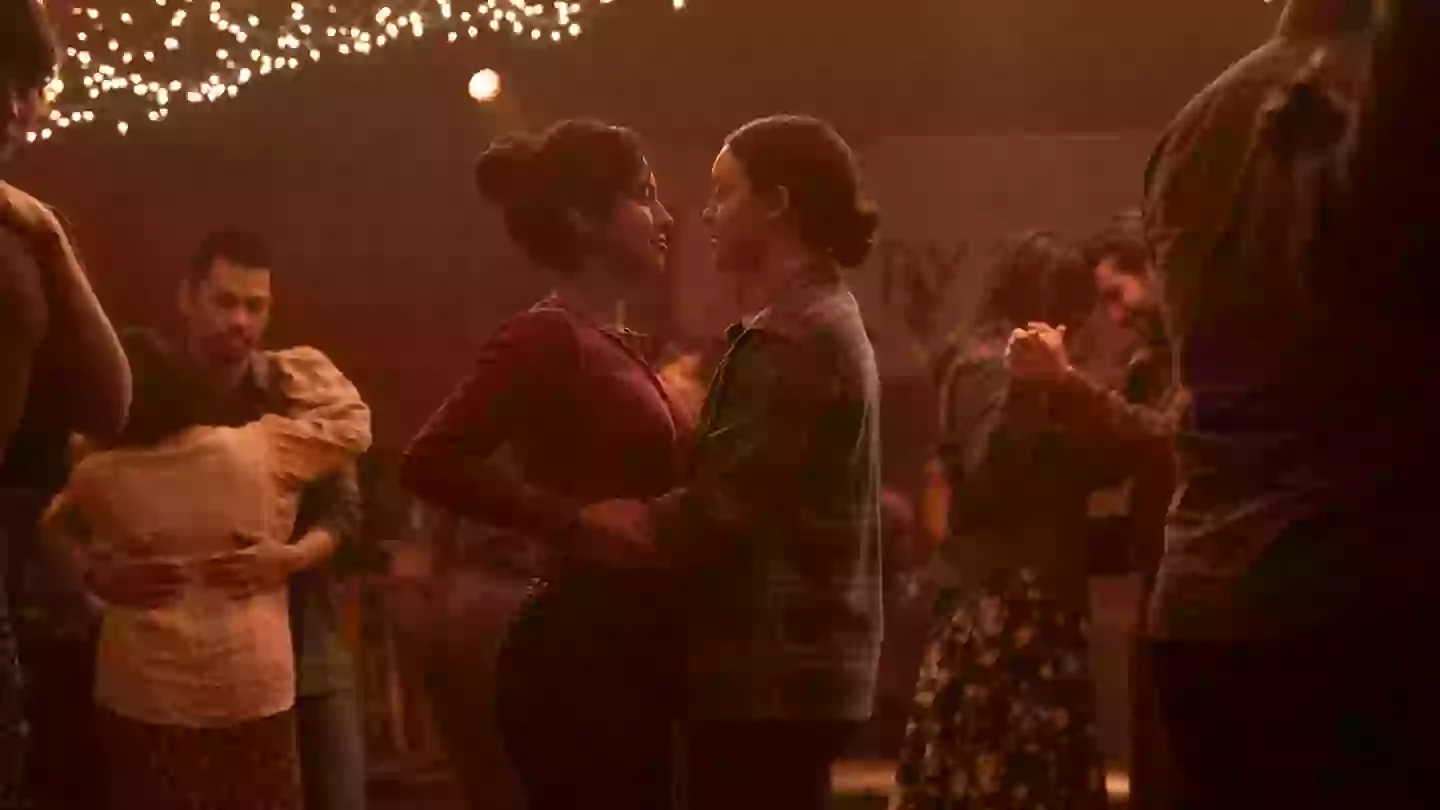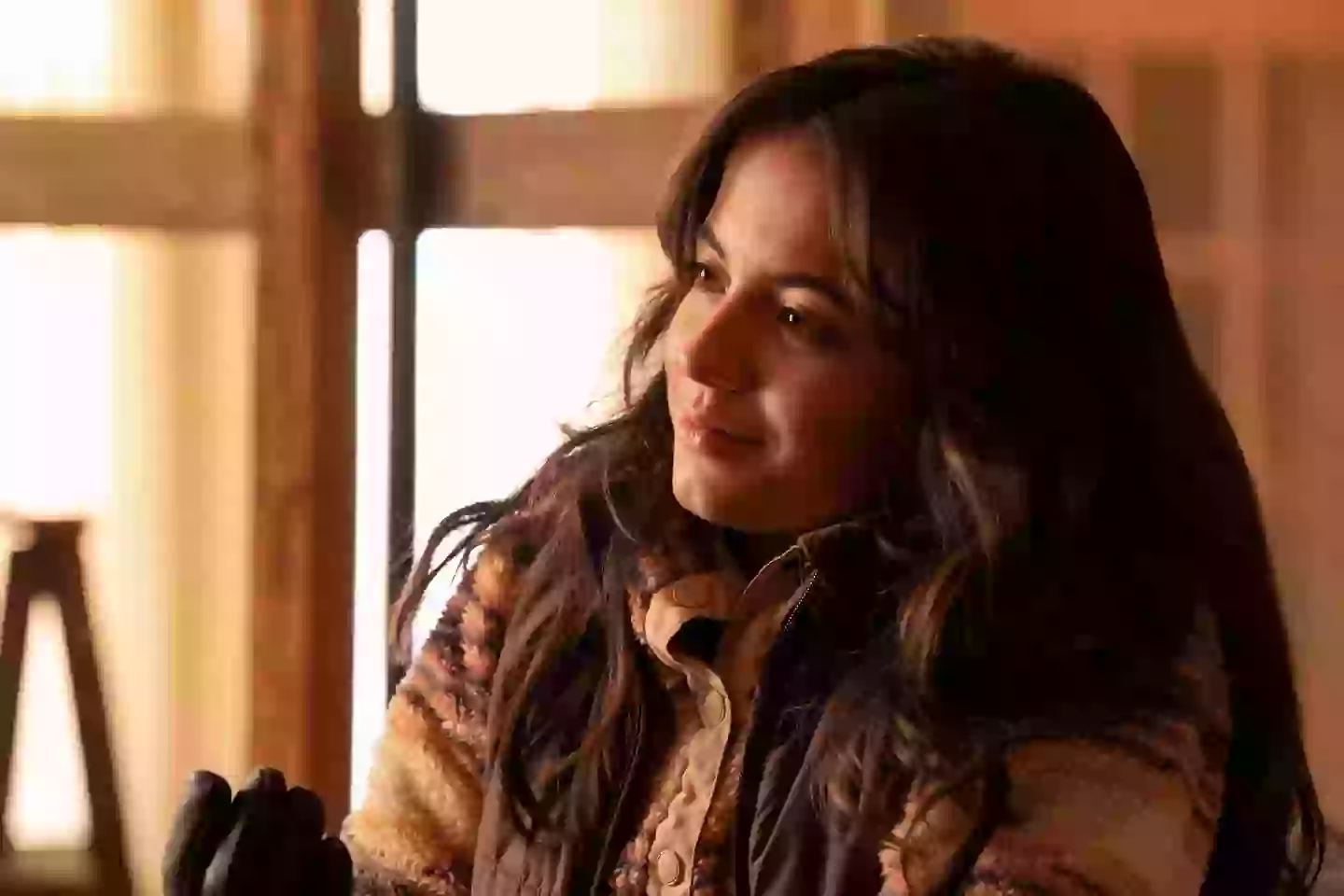
The Last of Us has returned on HBO and like many viewers, I found myself wildly drawn by one character in particular in the season’s premiere episode: Dina.
This didn’t come as a complete surprise; Dina is well loved by those of us who have played Naughty Dog’s The Last of Us Part II upon which this season is based. She’s warm, logical, and grounding, perfectly countering Ellie’s bullish tenacity amongst other emotions that I’ll refrain from mentioning but that’ll develop later in the season. The Last of Us Part II’s tale isn’t a happy one, and I’m sure we’ll be able to say the same of season two of HBO’s adaptation when all is said and done. Amidst the violence and darkness, Dina provides light so I’m wholly unsurprised to see this latest iteration anchored this way.
All of this being said, I didn’t quite predict that Dina would be the standout character above all others. Clearly, there’s a lot to unpack when it comes to Joel and Ellie’s increasingly fractious relationship, and Craig Mazin and Neil Druckmann’s adaptation has introduced Abby as a major new player, making her intentions clear from the get go. Dina, on the other hand, is really a support system in this opening episode. On the surface, it doesn’t appear as if the plot revolves around Dina at all and yet, I actually think she may be the most important character within ‘Future Days’.
Advert
Watch the series’ latest trailer to see what else is in store in the season ahead.
You see, ‘Future Days’ is light on the action - outside of introducing the stalker - but that was exactly the right call. It’s clear that episode two is going to be total mayhem. We’ve already seen via the show’s trailer that a horde of infected is headed for Jackson and that triggering of the infected’s fungal network at the end of episode one only signals that its arrival is imminent. Until then though, it’s important that ‘Future Days’ establishes where everybody is five years on from the events of season one which is no easy undertaking when so many new characters have been added into the mix.
Naturally, it’s Joel and Ellie that viewers are going to care about the most, particularly if they haven’t played the games and have no prior knowledge of the new characters. The problem is that Joel and Ellie aren’t exactly on speaking terms and as a TV series, you have to encourage viewers to invest despite the fact that they are passive viewers. That’s not the case with the video game; you’re actively playing a role in the story so you’re more likely to be drawn in even when certain emotional matters are withheld until later in the game. You don’t have that luxury here, so how did Mazin and Druckmann lure in TV viewers? Dina.
Advert
Dina is so much more than Ellie’s best friend turned love interest here; she’s a confidant to both Joel and Ellie, teasing information out of the two characters that it’s important for us as TV viewers to know. In fact, in the game, Joel is incredibly isolated during this part of the story - only really sharing a few words on the matter with Tommy. Here, he opens up to Dina. Yes, he may be underselling the issue as what’s going on is clearly a tad more than a rebellious teenager acting out, but Dina offers Joel the opportunity to remind us as the viewer that he’s really just attempting to do his best. Ellie may think very little of him at the present time but already, Joel’s softness with Dina - and Tommy’s son Benjamin for that matter - reminds you that all he ever does is try.

I’m glad that the series has continued down this path, as Pedro Pascal’s Joel was shown in the first season to struggle with anxiety during his journey across the country with Ellie. It added a much needed sense of realism to the character who, admittedly, can come across as an inhuman force of nature at points in that initial game. I found myself shattered by Joel’s account of his conversation with Dina to this therapist Gail in ‘Future Days’. “Now that one, that one treats me like a human being,” Joel remarks. “She talks to me, says hello, gives me a smile, looks up to me, makes me feel like I'm a good guy, which I am. See, Dina understands me like she's my kid or something.” Dina’s kindness really allows Joel to express how much Ellie’s behaviour hurts in a way that simply doesn’t happen in the game. It makes their continued relationship strain all the more painful to witness as the viewer.
Of course, on the other side of the coin, Dina similarly is a vessel through which Ellie can explore her feelings about Joel. That’s perhaps less surprising as the duo broach the topic in the game as they’re exceptionally close in both versions of this story. There’s more at stake for Dina though in HBO’s TV iteration as this is the first time that we’ve really gotten to see what Joel means to Dina. There’s a warm bond between the duo which is perhaps unsurprising if Dina has been Ellie’s best friend for the last five years. As such though, Dina has all the more reason to want to see Ellie and Joel put their differences aside. You can see her frustration when after mentioning Curtis and Viper 2 to Ellie, one of Joel’s favourite movies, she brushes off the reference.
Advert
Dina has added so much emotional weight to the series, teasing the very best traits out of both Joel and Ellie when the duo are never really together to do that to one another as we saw in season one. As such, she draws us in as the viewer, and I have a feeling that that’s only going to devastate us more in the episodes to come, but that’s the ride we’ve chosen to embark on. It would be remiss to not point out that a major part of Dina’s imminent popularity with the TV audience is also down to Isabela Merced’s enigmatic performance; she’s a delight to watch, but she’s also been given great material to work with. In a tale that will soon evolve heavily around Ellie and Abby, I’m totally thrilled that ‘Future Days’ has set up just how important having a support system like Dina can be.
Topics: The Last Of Us, The Last Of Us Part 2, Naughty Dog, TV And Film, PlayStation, PlayStation 4, PlayStation 5, Sony, Opinion